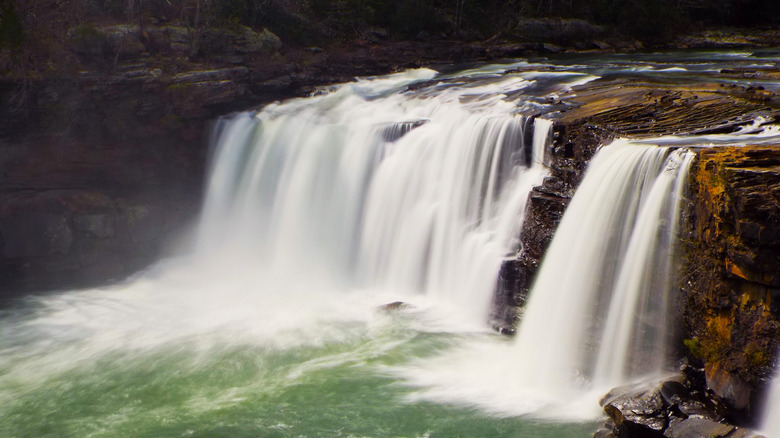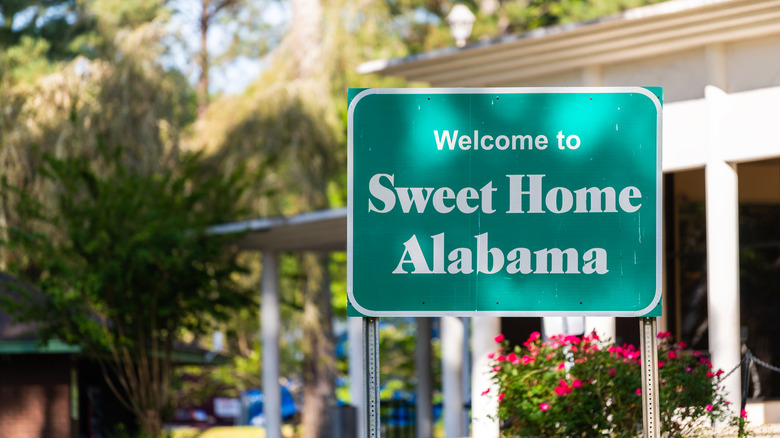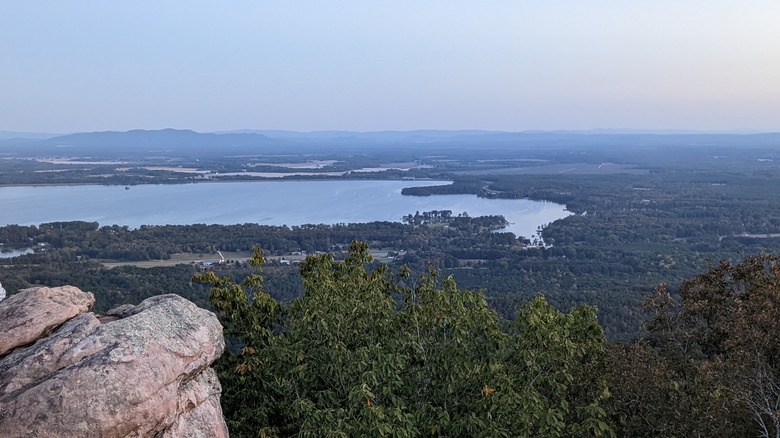This Little Alabama Town Has Nearby Waterfalls, Vintage Vibes, And One Of The South's Largest Outdoor Markets
The pinnacle of Southern culture, Collinsville, Alabama, is situated on historic Cherokee land in the beautifully rugged Little Wills Valley. It's a small town with a population of only 2,064, and it boasts wide streets, big skies, and beautiful wooded Appalachian backdrops. Home to the largest and oldest flea market in the South, Collinsville welcomes visitors keen to shop for vintage treasures, explore museums, waterfalls, and trails, and sample the region's quintessential Southern fare.
Originally named Lynchburg after three brothers who settled on Native land in approximately 1814, Collinsville began as a settlement at the fork of Little Wills Creek. At the time, it was named after Cherokee Chief Big Will. Many of the town's features and natural settings have kept the same feel for several decades, and on the drive into town, it's not uncommon to see some historic markers like old roofs, sheds from bygone eras, and historic bridges.
Experience local heritage and culture in Collinsville
An ideal location for a rural but cultural stay, Collinsville is conveniently located just over an hour from Alabama's bigger cities, Birmingham and Huntsville, and approximately two hours and 20 minutes west by car from Atlanta, Georgia, which has an international airport. It is said that the people of Collinsville are proud of the town's heritage, and you don't have to look far to see some of it for yourself. The Museum of Collinsville History was established in 2006 and showcases some of the best examples of a well-preserved Southern past. These include early trade and education items, military memorabilia, pictures, letters, and a whole section dedicated to the importance of the railroad in Collinsville's evolution.
Almost a museum in itself, Collinsville's flea market, officially known as the Collinsville Trade Day Flea Market, is open every Saturday and attracts thousands of visitors every year. It's one of the oldest and largest of its kind in the southern United States, sprawling across a whopping 65 acres. There's way more to be seen than anyone can manage in a single Saturday, so multiple visits to the quintessentially Southern food vendors, toys, clothes, and antiques stalls are encouraged. It began in 1902 as a horse trading meet-up on the banks of Little Wills Creek, known as "Horse Swappers Day." As the years went on, the wives of the horse sellers joined the market with baked goods, and it quickly became an integral part of Collinsville life. Attracting visitors from near and far, the Horse Swappers Day eventually outgrew its downtown location and became Collinsville Trade Day, moving on to its current spot on U.S. Highway 11 in 1955.
Bask in the beauty of Appalachia
If you'd rather hike than shop, the choice of trails is just as plentiful as the spread of vintage clothes and crockery at the flea market. Griffin Falls and its surrounding trail is probably the area's most well-known, located 4.6 miles out of town towards Dawson. With the same route there and back, the prize at the end of this moderately difficult trail is a 40-foot cascade of water, rushing over an impressive sandstone wall. Not only popular with hikers, Griffin Falls and the Sand Mountain area have become a prime destination for rock climbers.
Southeast of Collinsville, towards Lookout Mountain, is Cherokee Rock Village, a boulder and rock wall park renowned within the climbing community as one of the best spots in the South. Its rounded, stacked boulder formations make for interesting and immersive hikes and photo opportunities. Plus, over 100 wild camping spots are dotted around the park for a few days in nature. Washing? Worry not. There's a heated bath house and pavilion for campers' comfort.
Just a 30-minute drive north along Highway 59 will take you right into Little River Canyon Preserve, the home of Lookout Mountain. It is unique due to the river flowing predominantly along Lookout Mountain's table-like summit, with views as magical as its geological arrangement. A designated national preserve, Little River Canyon welcomes visitors who are dedicated to enjoying the outdoors responsibly, even those looking for a more extreme adventure. The river itself is suitable for white water rafting, while its banks and rock walls are another source of inspiration for climbers.


